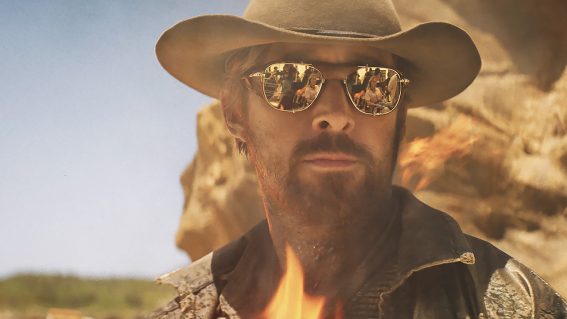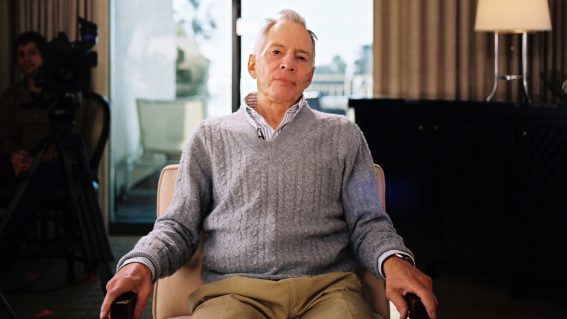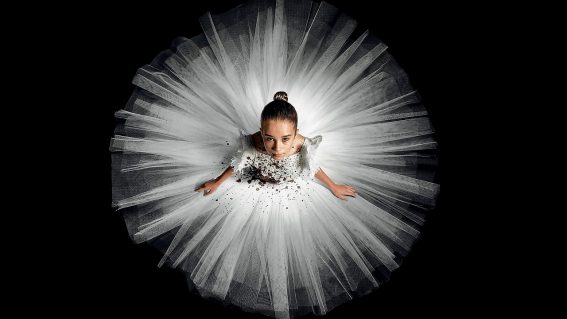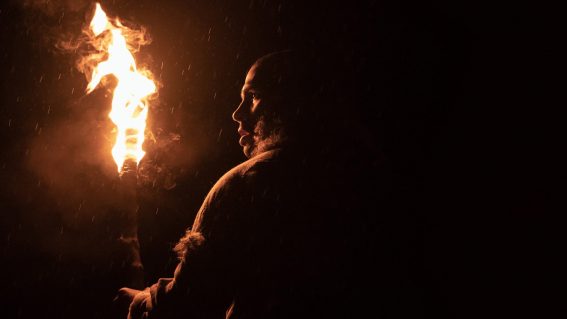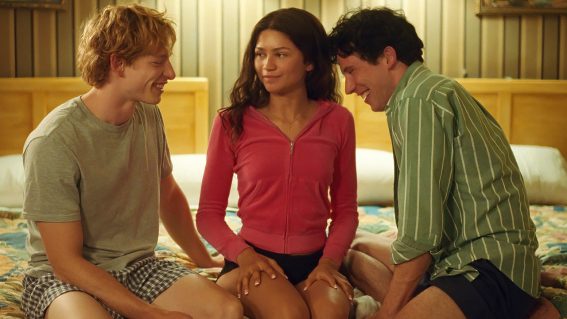Bad Behaviour is a waffly, pseudo-whimsical wellness drama
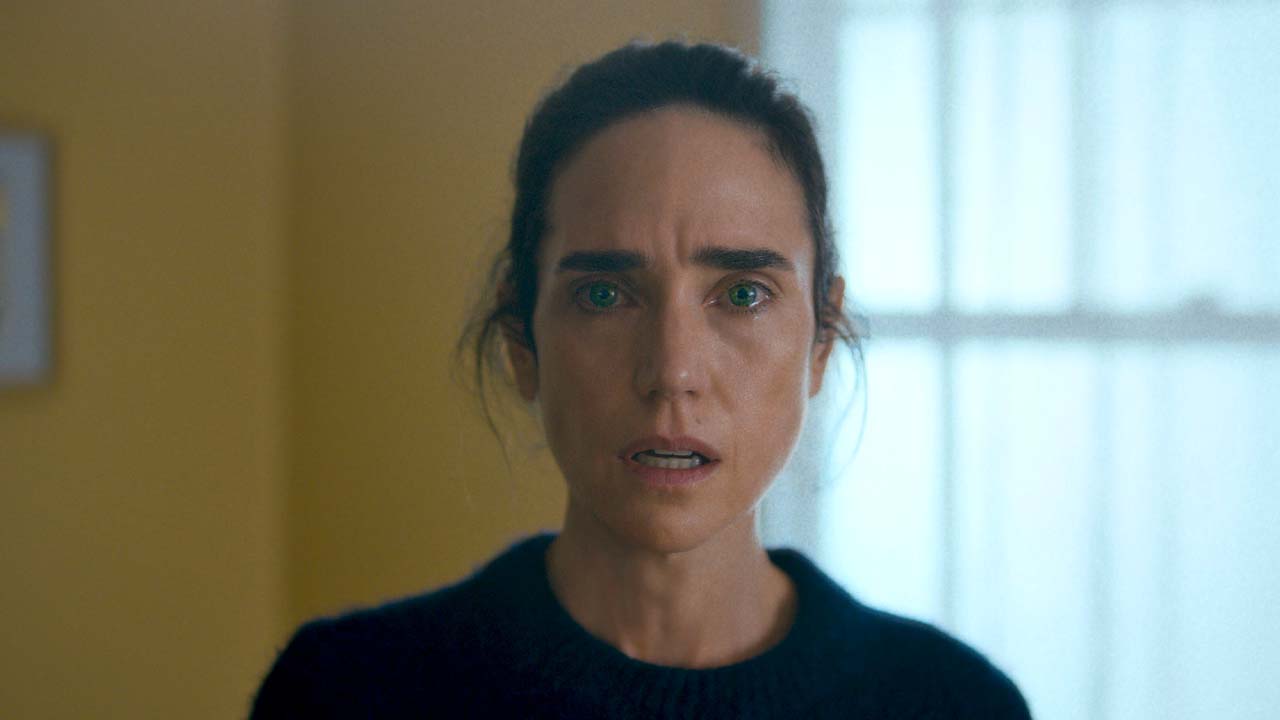
The feature film directorial debut of Alice Englert, the daughter of Jane Campion, is intended to be whimsical but is stuck in a glum haze, writes Luke Buckmaster.
Bad Behaviour
For a film that’s supposedly based in and around a near-silent retreat, there sure is a lot of talking in Bad Behaviour—about confronting fear, recognising your true self, finding inner peace, a yada yada. All the greatest hits from Enlightenment 101. Jennifer Connelly plays Lucy, a former teen star who heads to an off-the-grid Oregon retreat run by Ben Whishaw’s Elon Bello, a mild-mannered but occasionally intense “guru” who is more realistic—and not as dramatically interesting—as many of his flakier, wellness-spruiking on-screen counterparts.
This chap is not at all, for instance, like Nicole Kidman from Nine Perfect Strangers: the enigmatic sangfroid leader with a bold plan, who picks their clients carefully and steers them towards predetermined outcomes, perhaps slipping them some liquid LSD along the way. Bello is the kind of guy who decides early in the day whether he’ll have chamomile or fennel tea after supper. There’s a scene, about 45 minutes in, during which he assigns everybody in his therapy group the role of either baby or mother, encouraging the faux-bubs to let everything out, permitting a few choice words spoken in English or “the tongue of your choice.”
In a stark reminder that I hadn’t caught this film’s meandering, wishy-washy vibes, and was not at all invested in the drama, I spent that scene hoping something terrible or incongruous would happen: maybe for instance somebody would accidentally break wind, triggering scrunched-up faces and finger pointing. Or better yet, I hoped, one of the wellness-seekers would drop dead—after consuming a poisoned activated-almond health shake, perhaps—and a sleuth with a chunky moustache, or a bicycle, or a squint, would burst upon the scene to declare that “this murder was committed in silence, but the killer made one very loud mistake!”
My advice to others who find themselves entertaining similar thoughts is: “DON’T HOPE!” I put those words in capital letters because so does Whishaw, when, in one of Bello’s more boisterous moments, he screams them at Connelly, whose crestfallen demeanour suggests she’s taking the instruction seriously. Although to be fair she’s in a funk from the get-go, brought to life by Connelly through a very believable performance as a sullen person adrift from themselves, unsure of what went wrong or where they’re headed. Her hard-to-fault performance is, like the film itself, caught in a glum haze: nothing pops or crackles. And all that waffle about finding yourself eventually takes its toll.
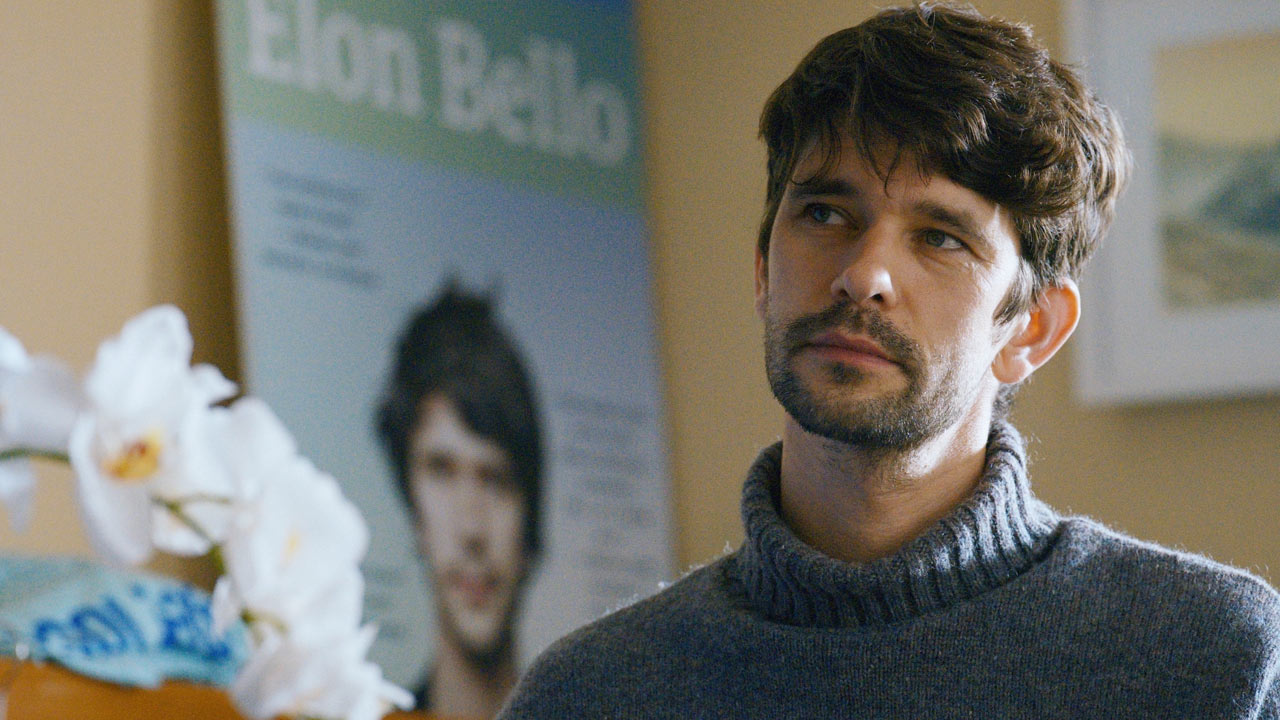
Bad Behaviour is bereft of interesting side characters who might have shared the load. Whishaw is irritatingly ponderous and thoroughly slappable as Bello, while Dasha Nekrasova plays a vapid model, Beverly, who Lucy takes a disliking to, the relationship between them contrived for an eventual (and sheesh, it takes a long time to get there) MacGuffin that sends the plot into different directions. The film’s writer and director, Alice Englert (the daughter of Jane Campion), plays Lucy’s daughter Dylan, whose mostly peripheral presence eventually expands and gives the drama a mother-daughter framework.
The aforementioned MacGuffin (no spoilers) is one of those events that make you think, “huh?” It’s not that we no longer understand the character in question; we never knew them in the first place. Nor can we be entirely sure what tone Englert was shooting for. Some elements seem intended to be satirical and humorous, but with such a morose mood, and dialogue that regularly dips into dark topics including self-harm, it’s hard to feel like you’re in on the joke—or that there’s a joke to be in on. Creating a sense of whimsy might’ve been her ultimate goal; in which case, Englert came up well short: nothing about this aggravatingly unfocused film feels playful or spirited.





